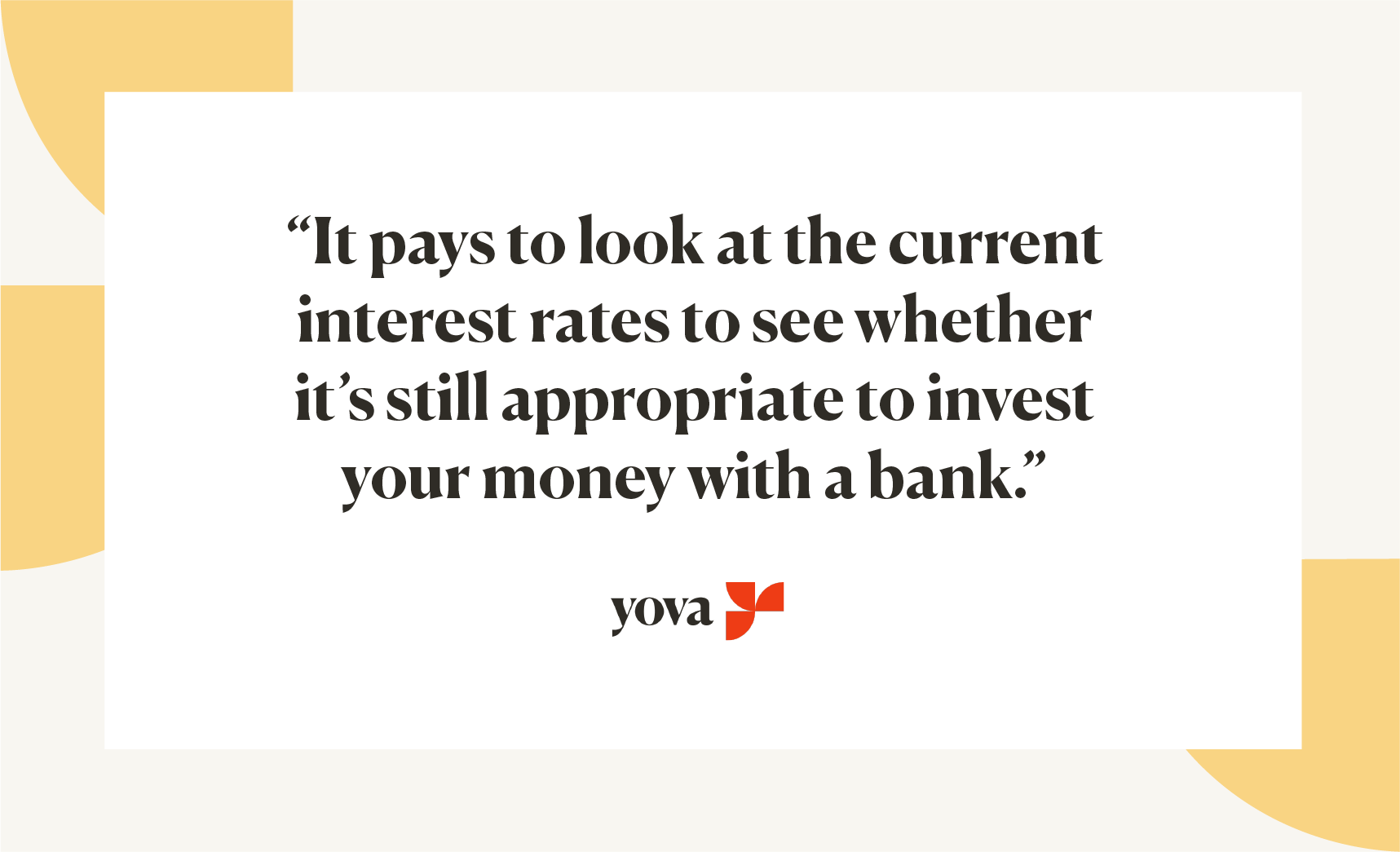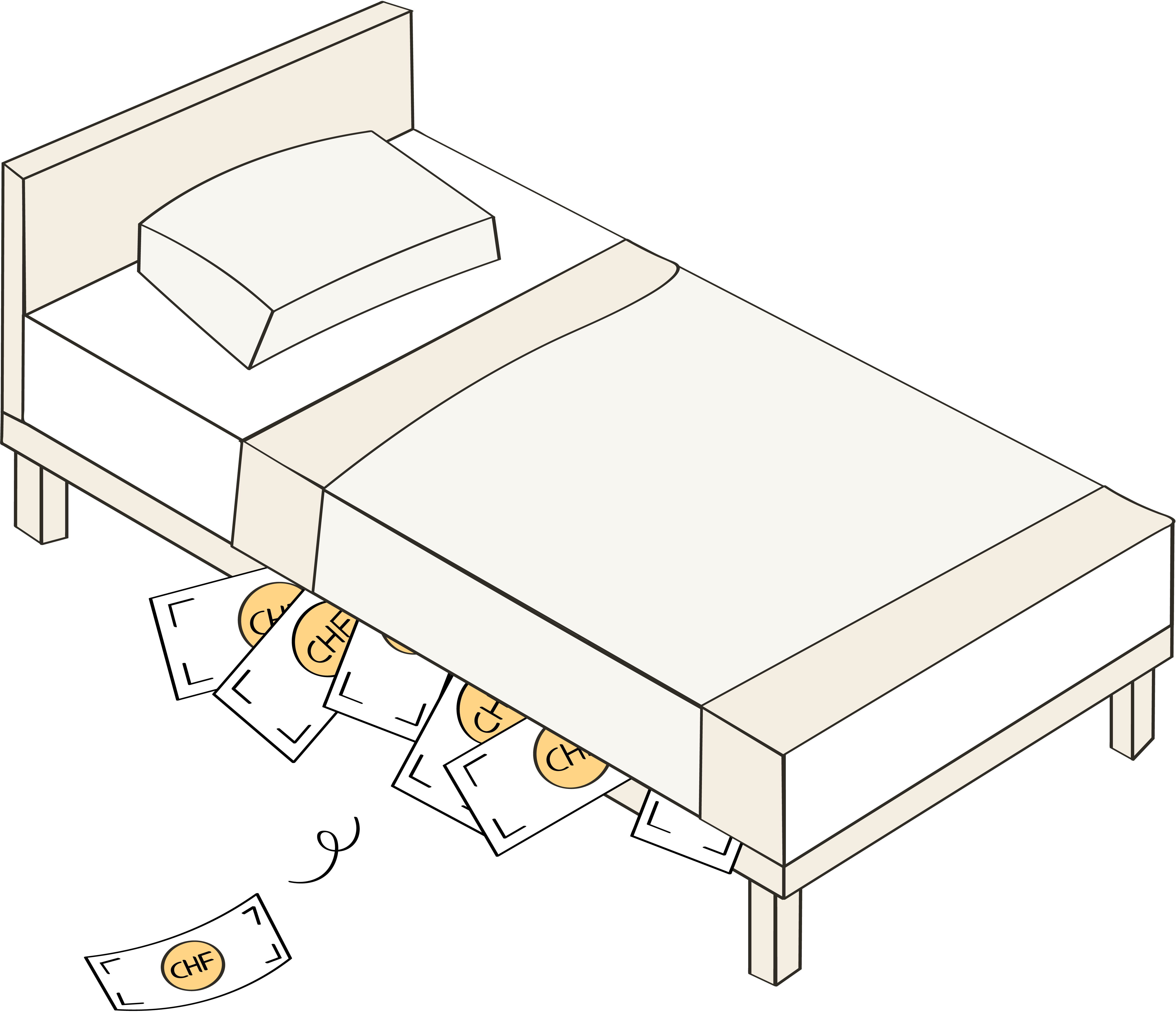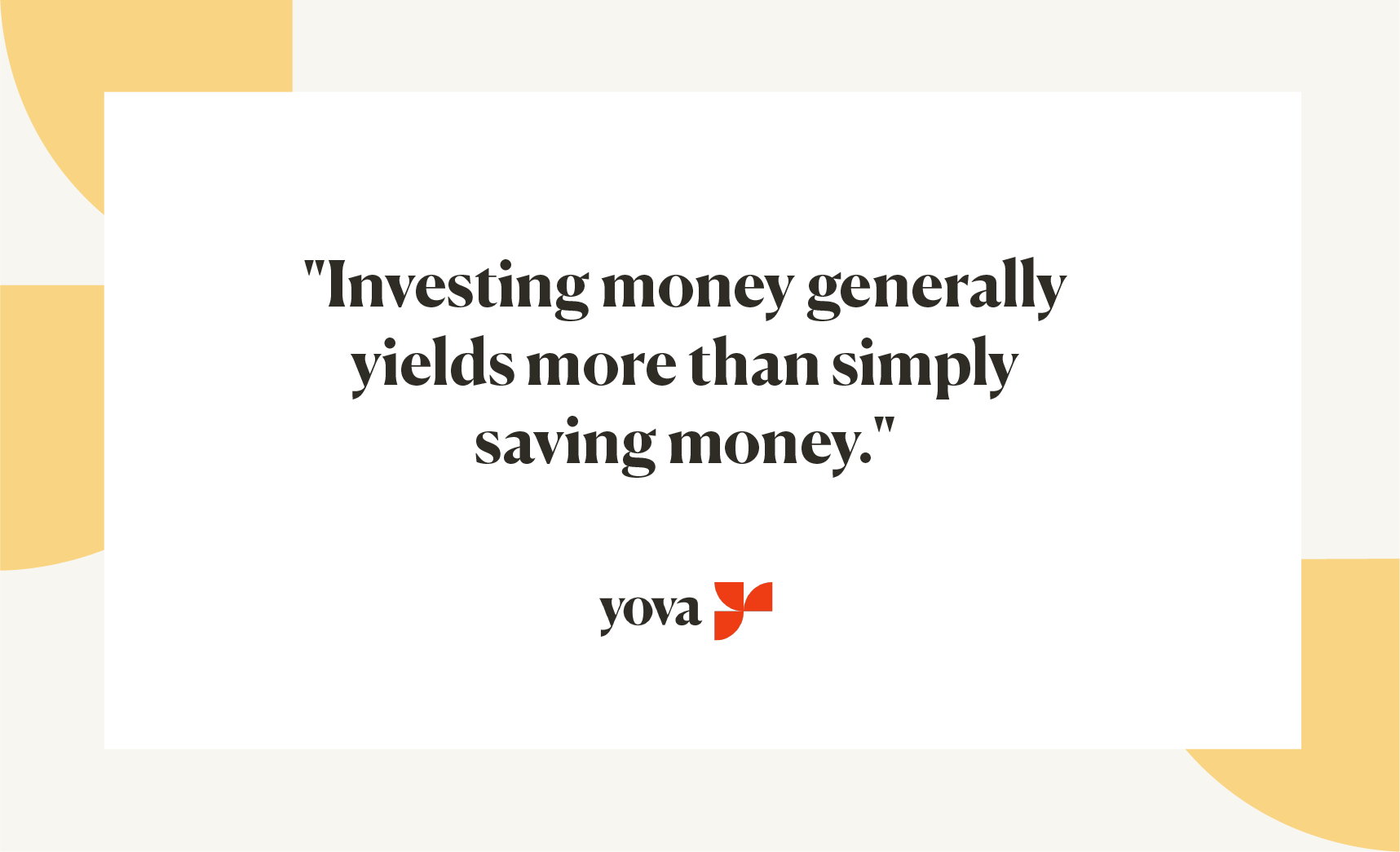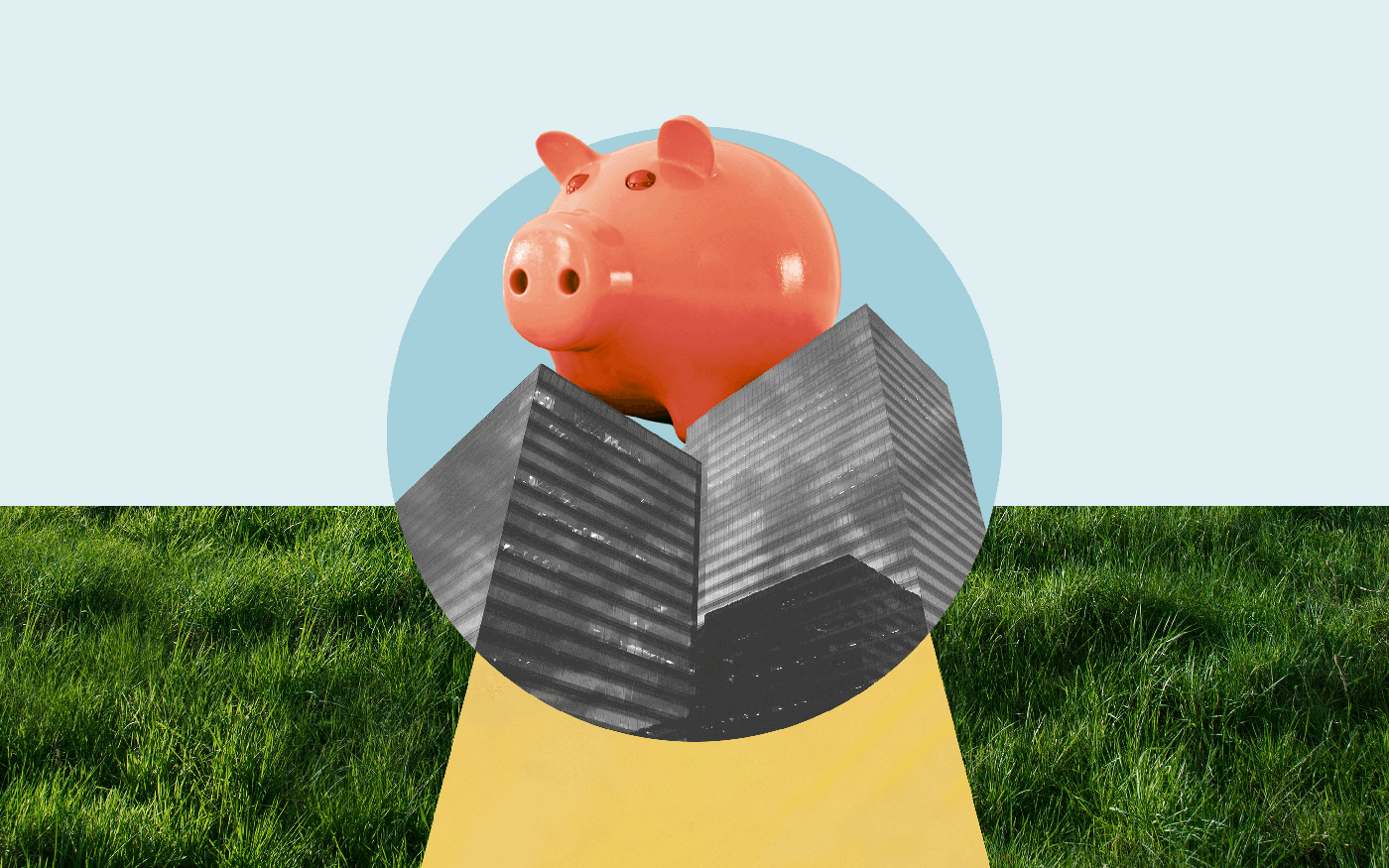
How can you save money in Switzerland the right way? It’s rare to find a Swiss citizen who hasn’t pondered this subject at some point in their lives.
Generally, the Swiss enjoy saving money. In a recent survey by Comparis, one in two respondents stated they regularly put money aside. Women, in particular, are concerned with saving as much money as possible each month.
Data from the OECD from 2016, in which 30 member countries were compared with each other, indicate that Swiss households save around one-fifth of their household income.
This puts us in the first place in Europe. In a global comparison, we’re second only to China (where more than a third of income is saved)!
So there’s no question that people in Switzerland enjoy saving money. But how can you save money in Switzerland? And where should the saved money be kept – in a safe at home, under a mattress or at a bank?
Many savers swear by their bank account, but since vault dealers are recording rising sales figures, one can assume that more and more Swiss people are saving their money at home.
But is your home really the best place to save your money?
In this article, we’ll address the best way to save your money in Switzerland and where to keep it. Although the choice is yours, the decision to save money at home or at the bank is an important one.
Saving money in the bank
Most of us learn it while we’re still children: saving money is important for the future, and the safest way is to invest your savings in a bank account. After all, in the account it’s free from most risks, and can slowly accumulate over time.
But does this still apply today?
It pays to look at the current interest rates to see whether it’s still appropriate to invest your money with a bank, or if there are better alternatives.
Swiss banks have a strong reputation internationally, and the Swiss banking system is one of the most important in the world. Nevertheless, interest rates for saving money in Switzerland are no higher than other European countries.

Current interest rates for savings accounts in Switzerland
To provide you with a better overview of the current interest rates on savings accounts in Switzerland, we’ve compared a few of the larger Swiss banks in the list below.
Credit Agricole Next Bank: Credit Agricole Next Bank is one of the few banks to offer its customers an interest rate of up to 0.5% for the first year if they select the ‘CA Sparkonto Energy’ product. However, assets are restricted for 24 months at this rate.
For example, if you keep CHF 1,000 in your savings account for two years at this interest rate, your assets will grow by around CHF 10 in the first year and amount to CHF 1,010.25 after two years.
Credit Suisse: The CS Bonviva savings account from Credit Suisse earns a 0.4% interest on your assets. However, you can only use the account itself if you’ve already purchased a Bonviva Platinum package which is subject to a fee.
UBS: Those who want to invest their money with UBS will have to settle for an interest rate of 0.0% on their savings account.
Raiffeisen: The interest rate for a savings account at Raiffeisen Bank ranges between 0.05% and 0.1% for members of Raiffeisen.
Our conclusion: Good interest rates are rare. Most banks offer interest rates of 0.1% or less – unless you purchase expensive additional packages.
There’s another catch: inflation is rising faster than your assets can grow at these rates. This means that while your money may be safe in the bank, it’s steadily losing value.
Nevertheless, many people in Switzerland still decide on saving their money in the bank.
This may be because they’re not familiar with or aware of other options, or because they appreciate being able to easily transfer their money from one bank account into another.
Saving money at home
If asked if they should save money at home or in the bank, a growing number of Swiss are likely to respond with “at home.”
But they’re skipping the money-under-the-mattress route. Instead, the Swiss are returning to a tried-and-true method: an at-home safe. According to SRF, there’s an increasing demand for vaults.
Additionally, since 2008, the Swiss National Bank also reported an increase in the disbursement of large bills. Experts suspect that the low-interest rates and financial market crisis may be the reason the Swiss prefer saving their money at home.

If you’re considering this option, it’s best to keep quiet. Large amounts of cash tend to attract thieves, and if someone gets wind of your savings tactics, your house may be targeted.
The only way to protect yourself is by installing surveillance systems and purchasing a certified safe. A proper set-up costs several thousand francs.
How can I insure my money at home?
Insuring cash at home is a bit more complicated, as cash is only partially covered by most household insurance policies.
If a theft occurs, most insurance companies have a maximum limit. Depending on the company, the limit could be a percentage of the agreed household insurance sum, or an amount in CHF.
If you are considering using a safe to store money, keep in mind that most insurance policies require it to have a high level of security.
Our conclusion: Saving money at home isn’t the best idea.
In principle, the more money you want to store, the more expensive the safe will be. This can be quite expensive. Since you can’t expect your money to grow while it’s in a safe, you’ll end up losing part of your assets.
It’s important to have a certain amount of money set aside for emergencies, even as you focus on long-term savings. There’s always the possibility for an unplanned bill or an unexpected expense to arise.
However, the decision to save money at home (ie, a safe) or in the bank is up to you.
How can I save money?
The first step is to actually make a conscious decision to save money.
Once you’ve made this decision, it’s important to know how saving money in Switzerland works best. We’ve put together a comprehensive overview that will help you save money and make it easy for you to take the first step.
It ultimately doesn’t matter where you save your money. The key thing is how much you earn with it. Investing money is a great alternative to simply saving your money, because investments generally have better yields.

In Switzerland, many people are hesitant about the risk of their savings decreasing in value if the investment doesn’t work out. But this risk can be minimised by proper management and diversification of the investment.
Inyova has written a quick guide that explains in greater detail how to reduce the associated risks of equity investments. Learn more here.
Together, we’ll create your portfolio so that it can grow with the stock market in the long run. In the past, this form of investment has led to average returns of 6% per year, although individual results may vary.
Since the stock market is constantly changing, the returns are also subject to fluctuations. Therefore, it’s even more important to choose a long investment perspective.
With Inyova, it’s easy to set up an individual savings plan. It’s tailored to your individual needs, and enables you to add money automatically to your investment every month. There’s no obligation and you can stop, suspend or adjust your savings plan at any time.
Inyova offers you a completely diversified investment portfolio, which is transparent and based on our experience. The stocks in your portfolio originate from companies in different industries, countries and currencies. Because the risk of losing money in a crisis is distributed among different factors, you don’t have all of your eggs in one basket.
With Inyova, you’re also free to choose which companies to invest in. Our algorithm ensures that your investment makes sense, even if you decide to change your portfolio.
What does it cost?
At Inyova, transparency is key. We charge you an annual fee of between 0.6% and 1.2% depending on the total balance in your account. This is calculated according to the current value of the investment and can be viewed online at any time.
There’s no question about it: saving money requires discipline and perseverance, as it goes hand in hand with renunciation. But with the right strategy, saving money can be fun and yield good returns.
Give it a try!


